Lolita Blu-ray Movie
HomeLolita Blu-ray Movie 
Warner Bros. | 1962 | 152 min | Not rated | May 31, 2011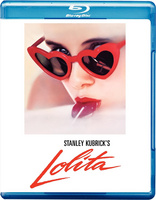
Movie rating
7.5 | / 10 |
Blu-ray rating
| Users | 4.5 | |
| Reviewer | 3.5 | |
| Overall | 3.5 |
Overview
Lolita (1962)
Humbert Humbert is a fastidious, middle-aged British novelist who is both appalled by and attracted to the vulgarity of American culture. When he comes to stay at the boarding house run by Charlotte Haze he soon becomes obsessed with Lolita, the woman's teenaged daughter. In fact, his passion for the girl becomes so overwhelming that he is willing to accept Charlotte's intimations of marriage just in order to be close to her daughter. Humbert then plots to spend more and more time alone with Lolita, but his pursuit of his obsession soon becomes such that it leaves all their lives damaged.
Starring: James Mason (I), Shelley Winters, Sue Lyon, Gary Cockrell, Jerry StovinDirector: Stanley Kubrick
| Drama | 100% |
| Psychological thriller | 39% |
| Dark humor | 26% |
| Romance | 9% |
Specifications
Video
Video codec: MPEG-4 AVC
Video resolution: 1080p
Aspect ratio: 1.66:1
Original aspect ratio: 1.85:1
Audio
English: DTS-HD Master Audio Mono (48kHz, 24-bit)
French: Dolby Digital Mono
Spanish: Dolby Digital Mono
Portuguese: Dolby Digital Mono
German: Dolby Digital Mono
Italian: Dolby Digital Mono
Subtitles
English SDH, French, German SDH, Italian SDH, Japanese, Portuguese, Spanish, Danish, Dutch, Finnish, Mandarin (Traditional), Norwegian, Swedish
Discs
25GB Blu-ray Disc
Single disc (1 BD)
Playback
Region free
Review
Rating summary
| Movie | 3.5 | |
| Video | 4.0 | |
| Audio | 3.5 | |
| Extras | 0.5 | |
| Overall | 3.5 |
Lolita Blu-ray Movie Review
"I want you to live with me and die with me and everything with me!"
Reviewed by Kenneth Brown May 27, 2011"How did they ever make a movie of Lolita?" If Stanley Kubrick were still alive, he'd probably answer his own poster with a retort. "We didn't. The MPAA did." Treading oh-so-lightly, Kubrick's 1962 adaptation of Russian novelist Vladimir Nabokov's 1955 novel of the same name required the notoriously rigid perfectionist to make far more concessions than he would have liked. Substantial changes were made to Nabokov's novel: 12-year-old Dolores Haze became 14-year-old Lolita, the characters' personalities were altered significantly, key scenes were left on the writers' room floor, the book's more overt eroticism was exorcised (subtle as it may have been) and Nabokov's screenplay, a startling 400-page beast Kubrick and producer James B. Harris deemed unfilmable, was gutted. Kubrick's production woes didn't end there. His early casting choices, among them James Mason and Laurence Olivier, grew skittish and politely declined to work on such a controversial project, often at the behest of their agents. He chose Sue Lyon mainly for her age and older-than-her-years demeanor even though both were in opposition to Nabokov's envisioned nymphet, all the while wishing he was able to cast a girl with a more childlike face and features. And more and more comedy, while true to Nabokov's original text, seeped into the slowly developing screenplay; a direction an older, more defiant Kubrick -- perhaps fresh off of 2001: A Space Odyssey or Barry Lyndon -- might not have pursued.
So how does one approach a controversial film so far removed from Kubrick's original intentions that he said, "if I realized how severe the limitations were going to be, I probably wouldn't have made the film"? Much like Kubrick approached Lolita: very carefully.
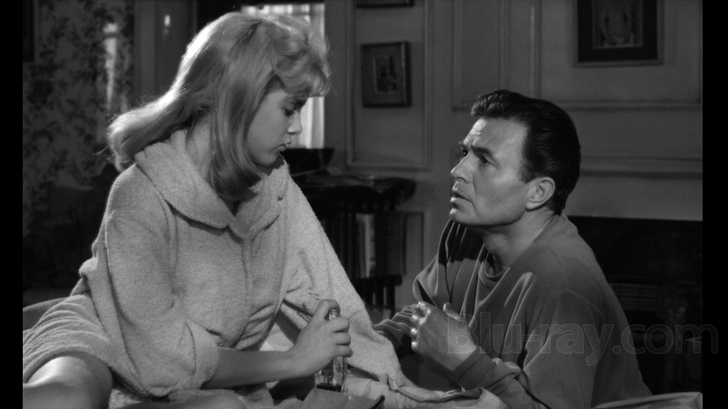
What drives me insane is the twofold nature of this nymphet, of every nymphet perhaps, this mixture in my Lolita of tender, dreamy childishness and a kind of eerie vulgarity. I know it is madness to keep this journal, but it gives me a strange thrill to do so.
Kubrick, particularly in the latter half of his career, was always more faithful to his own vision than that of the author whose work he was adapting, and he remains one of just a few filmmakers whose adaptations frequently surpass their original texts. But Kubrick's Lolita falls short of Nabokov's novel and sometimes seems to miss the point entirely, whether that be the case or not. That said, very little blame can be laid in the director's lap -- under such immense pressure, his early ideas and intentions didn't stand a chance of making their way to the screen, at least not in 1962 -- and criticism of the neutered nature of Lolita leaves little room to enjoy the film on its own merits. Kubrick may be hemmed in, but he prevails, thanks in large part to an arresting opening scene that propels the rest of Lolita along: the book's ending. In it, a middle-aged man we soon learn is Professor Humbert Humbert (James Mason) confronts, shoots and kills a distraught drunkard named Clare Quilty (Peter Sellers). The rest of the film flashes back a full four years to flesh out the long, darkly amusing setup that will eventually lead to Humbert's murderous punchline. Of course, as soon as Lolita (a strangely disconnected Sue Lyon) appears on screen and quickly earns the professor's uncomfortable affections, it becomes clear that the young teen will be at the center of the storm.
What follows is a study of obsession, lechery, deceit and desperation framed as a dark comedy simmering with deadly intent; one that feels all at once dreamlike and unreal. Knocked off-balance, we're left with no solid rock to cling to but Humbert, a go-to bit of sleight-of-hand Kubrick used throughout his career to endear his audiences to otherwise despicable characters. (HAL in 2001, Alex in A Clockwork Orange, Redmond in Barry Lyndon, Jack in The Shining and Dr. Hartford in Eyes Wide Shut, just to name a few.) It works, at least in part. Humbert is such a smooth, dashing charmer that it can be easy to forget he's a also a covetous, self-absorbed pedophile. The fact that he's more charismatic and likable than every other adult in the vicinity, Lolita's pushy mother (Shelley Winters) included, only complicates matters. Likewise, Lolita is so perceptive and open to his advances that it's sometimes difficult to see her as a complete victim of youthful folly. The resulting sexual relationship -- forged while posing as father and daughter on a motel-to-motel cross-country excursion -- is even murkier, giving Kubrick leave to test his moviegoers, toy with their sensitivities and sensibilities, and lure them into laughing when anything but laughter is called for.
Unlike Nabokov, though, Kubrick offers little insight into Humbert's attraction to Lolita, placing the weight of their inevitable relationship on the girl's innate sexuality rather than the professor's vices. In the novel, Humbert struggles with everything from fixation issues (stemming from childhood) to mental instability, debilitating anxiety and a history of botched romances with women his own age. In the film, he's merely a man in love; a forbidden love, no doubt, but love all the same. It's this problematic game of give-and-take that makes it so agonizing to willingly and completely surrender yourself to Kubrick's poor-taste whims. And, in part, that's exactly what makes Lolita as fascinating a film as it is. Kubrick would later perfect simultaneous audience alienation and cooperation with A Clockwork Orange, leaving one to wonder whether the director's short MPAA leash diluted what would have been a thoroughly disturbing and unsettling portrait of a man run ragged with obsession. Upon Lolita's 1962 release, Variety likened it to "a bee from which the stinger has been removed." The review didn't stop there. "It still buzzes with a sort of promising irreverence, but it lacks the power to shock and, eventually, makes very little point either as comedy or satire. The novel has been stripped of its pubescent heroine and most of its lively syntax, graphic honesty and sharp observations." Harsh and dismissive as that may be, I can't help but agree with the sentiment, if only a bit. Lolita is a fine film with several strong performances (Mason and Sellers are both excellent), but it lacks power, resonance and, above all, the one thing it really needs: Stanley Kubrick circa 1970.
Lolita Blu-ray Movie, Video Quality 
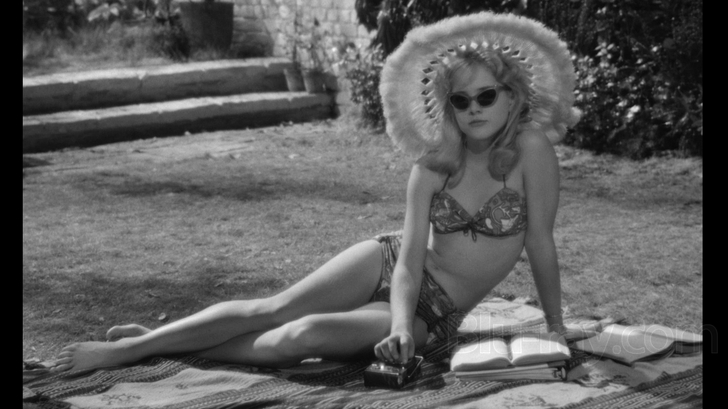
Lolita features a handsome 1.66:1 1080p/AVC-encoded video transfer that preserves Kubrick's intentions well. A fine veneer of unobtrusive grain lingers overtop the image, lending it a admirably filmic appearance. Detail isn't entirely consistent but neither is Oswald Morris' original photography. The softness that seeps in isn't distracting or problematic, and the film's natural textures and clean edges will alleviate any persisting concerns. Contrast is also spot on. Whites are crisp and cool, midrange grays and mid-tone gradients are lovely, and black levels are quite deep. Yes, crush rears its head from time to time, particularly in Kubrick's shadow-draped interiors, but individual dark hairs and costume fur seem to be the only victims of note. Otherwise, the technical encode is a beaut. Artifacting, aliasing and banding keep their distance, smearing and ringing aren't present, and the whole of the picture makes the transition to high definition without incident, besting its previous DVD counterpart in every conceivable way. Like Barry Lyndon's Blu-ray debut, Lolita deserves any praise that comes its way.
Lolita Blu-ray Movie, Audio Quality 
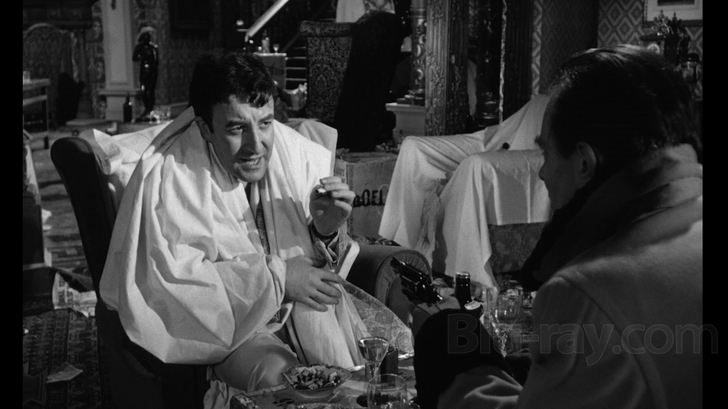
Warner's DTS-HD Master Audio Mono mix is certainly serviceable; a welcome addition to the release even. Its faithfulness is commendable, its dialogue is crisp, distinct and intelligible, and its music and effects, though a bit crowded, are given ample room to play. That said, there isn't really anything special about the track either. Whereas the Blu-ray edition of Barry Lyndon offers a subtle but strong 5.1 remix, Lolita doesn't venture beyond the bounds of 1962. Purists will be pleased, more casual filmfans will simply nod their heads and focus on the quality of the film's video transfer.
Lolita Blu-ray Movie, Special Features and Extras 
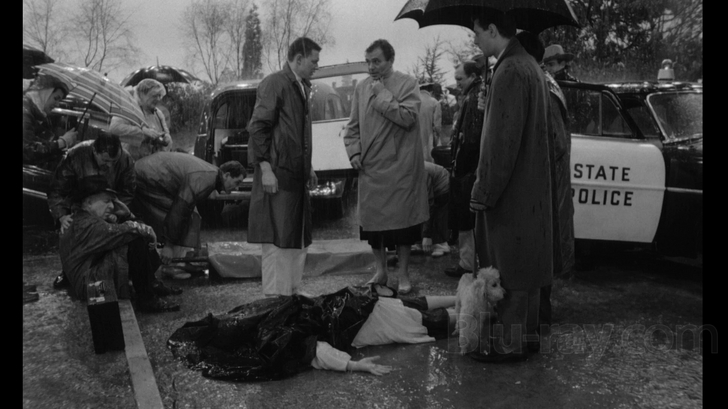
Standard definition theatrical trailer notwithstanding, the Blu-ray release of Lolita doesn't include any significant special features.
Lolita Blu-ray Movie, Overall Score and Recommendation 
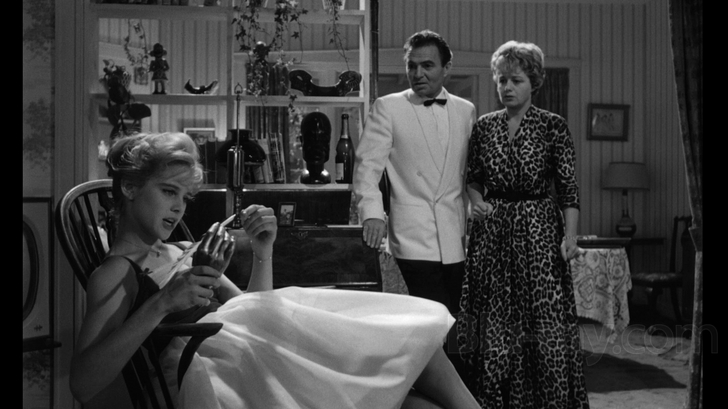
Lolita split audiences and critics upon its release and continues to do so some fifty years later. For me, it stands as one of Kubrick's weakest films; a project sullied by the MPAA and the social climate of the era. For others, it stands in stark contrast to his later work and demonstrates the director's ability to subdue and subvert any challenge he faced, censorship included. But both camps can agree on this: Lolita is a crucial milestone in Kubrick's evolution as a filmmaker that plants countless seeds the director would later cultivate in Dr. Strangelove, 2001, A Clockwork Orange, Barry Lyndon and Eyes Wide Shut. Thankfully, Warner's Blu-ray release is less divisive. While it doesn't include any special features -- I'm sure a 50th Anniversary Edition is in the works for 2012 -- its video transfer is terrific and its DTS-HD Master Audio mono mix is a solid one. Proceed with confidence.
Similar titles
Similar titles you might also like

O Lucky Malcolm!
2006

Stanley Kubrick: A Life in Pictures
2001

Eyes Wide Shut
1999

Dr. Strangelove or: How I Learned to Stop Worrying and Love the Bomb 4K
1964

A Clockwork Orange 4K
1971

Barry Lyndon
1975

Lilith
1964

Moonlight 4K
2016

Antichrist
2009

Disobedience
2017

Call Me by Your Name
2017

Sunrise
Sunrise: A Song of Two Humans
1927

Days of Heaven 4K
1978

A Streetcar Named Desire
Warner Archive Collection
1951

The Last Picture Show 4K
includes Texasville on Blu-ray
1971

The Ice Storm
1997

One Flew Over the Cuckoo's Nest
Ultimate Collector's Edition
1975

Make Way for Tomorrow
1937

Maps to the Stars
2014

The Red Shoes 4K
1948